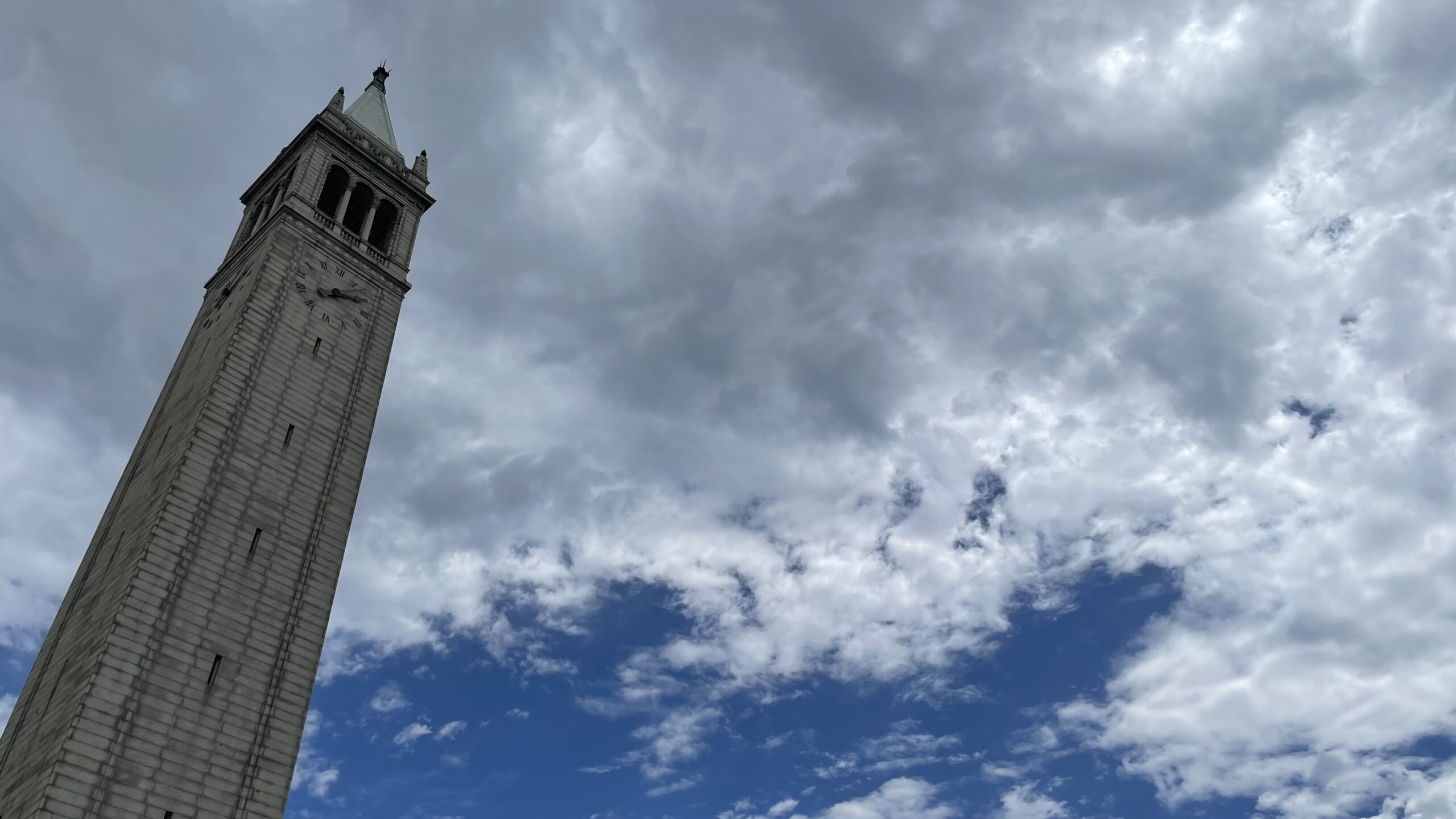
UC Berkeley’s campanile sounding out the fall semester
Fall brings the bustle back to campus: the doubled traffic, the logistics planners, the events and grounds crews, the battalions of excited and brilliant first-year students. The bustle never left the OHC. We continue to push forward on a number of fronts, publishing oral histories, podcasts, and documentaries, giving presentations at conferences, and leading educational and public history work. But first, our fourth podcast season, Berkeley at 150: Let there Be Light, explores three different aspects of life at Berkeley: home, food, and studying hard. First-years to alums, feel free to enjoy in no particular order.
In August, we hosted our 21st Oral History Advanced Institute. With around fifty remote attendees from across the United States and around the world, we explored the A-Z of oral history, from theory and methodology to interviewing practices and options for archiving and interpreting interviews once they are completed. Most valuable of all, for us and for the attendees, was the workshopping of individual projects. Everyone came away with a richer experience of what it means to do this work! Watch our web space and our social media in early 2024 for next August’s institute.
Recently, we launched the UC Berkeley School of Public Health Oral History Project, which documents the changes and innovations the school has undertaken over the past twenty years. We’ve recently had the great fortune of interviewing some titans in the humanities and social sciences, exploring the relationship between a thinker’s lived experience and their ideas. Roger Eardley-Pryor interviewed famed environmental historian Carolyn Merchant, who is one of the key contributors to the domains of ecofeminism and feminist science studies. But more than that, it is nearly impossible to be an educated general historian without encountering her work in your formation and scholarship. Merchant and James Scott are two intellectuals who seem to transcend the notion of fields, whether traditional or new. It is rare to visit a scholar’s office or home, no matter what their discipline, and not see a copy of Scott’s Seeing Like A State on the shelf. Not only did Todd Holmes interview Scott and other scholars at the Agrarian Studies program that Scott founded at Yale, but he also produced a film about Scott, which is part of our ongoing work to make our interviews accessible and useful to educators, students, and the general public.
We’re putting the finishing touches on our first-ever exhibit in collaboration with The Bancroft Library, entitled “Voices for the Environment: A Century of Bay Area Activism.” Right across from our offices in The Bancroft Library, the museum space will feature audio from our interviews set to video of photos, maps, and more, while original paintings, murals, photos, posters, and pamphlets are displayed throughout the gallery space. There are also podcasts with more interview content for each section of the exhibit, all of which will be placed online as a permanent digital exhibition for the public to explore.
At the Oral History Association annual meeting in Baltimore, Roger Eardley-Pryor will present on a panel on the integration of audio and objects into public history and education work on October 19th. Amanda Tewes will be moderating that panel, as well as “Place-Based Oral Histories” on October 20th. Amanda also served on the OHA’s 2023 Program Committee. Shanna Farrell, who is on the Oral History Association Council, will be moderating the “Interviewing Dilemmas” panel on October 20th.
With the interviews for the Japanese American Intergenerational Narratives Project near completion, the interviewers recently collaborated with graphic artist Emily Ehlen and producer Rose Khor to build graphic-art pieces and a podcast derived from the interviews. We’re looking forward to their release.
Communications Director Jill Schlessinger asked student editors to reflect on the nature and meaning of oral history based on their experiences working with transcripts and conducting research at the center. Editor Adam Hagen also wrote a piece about Ernesto Galarza based on our interviews with the Mexican American educator and activist.
We’re continuing a lot of projects: on Japanese American intergenerational narratives, the East Bay Regional Park District, the Getty Trust, the San Francisco Opera, and the California State Archives. A host of new projects are coming this school year, from the California Supreme Court to cannabis genetics to the California Coastal Commission to more voices from UC Berkeley and the Bay Area science community. Stay tuned.
We wish everyone on campus and beyond a fantastic year!